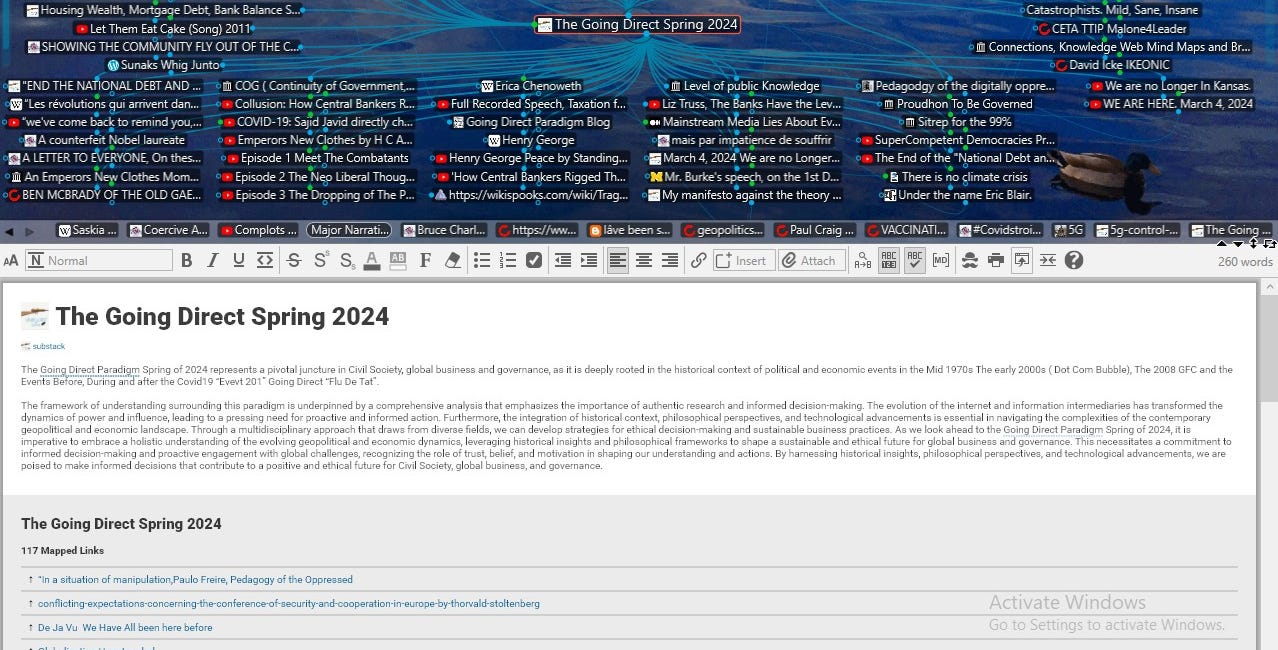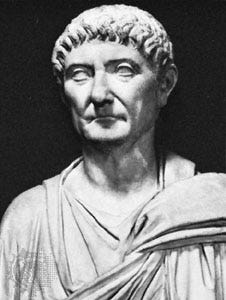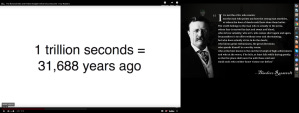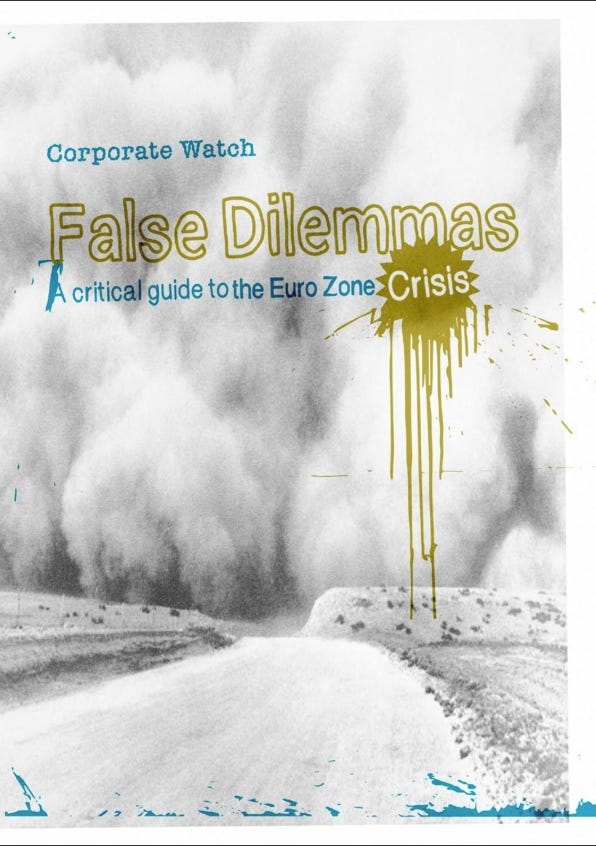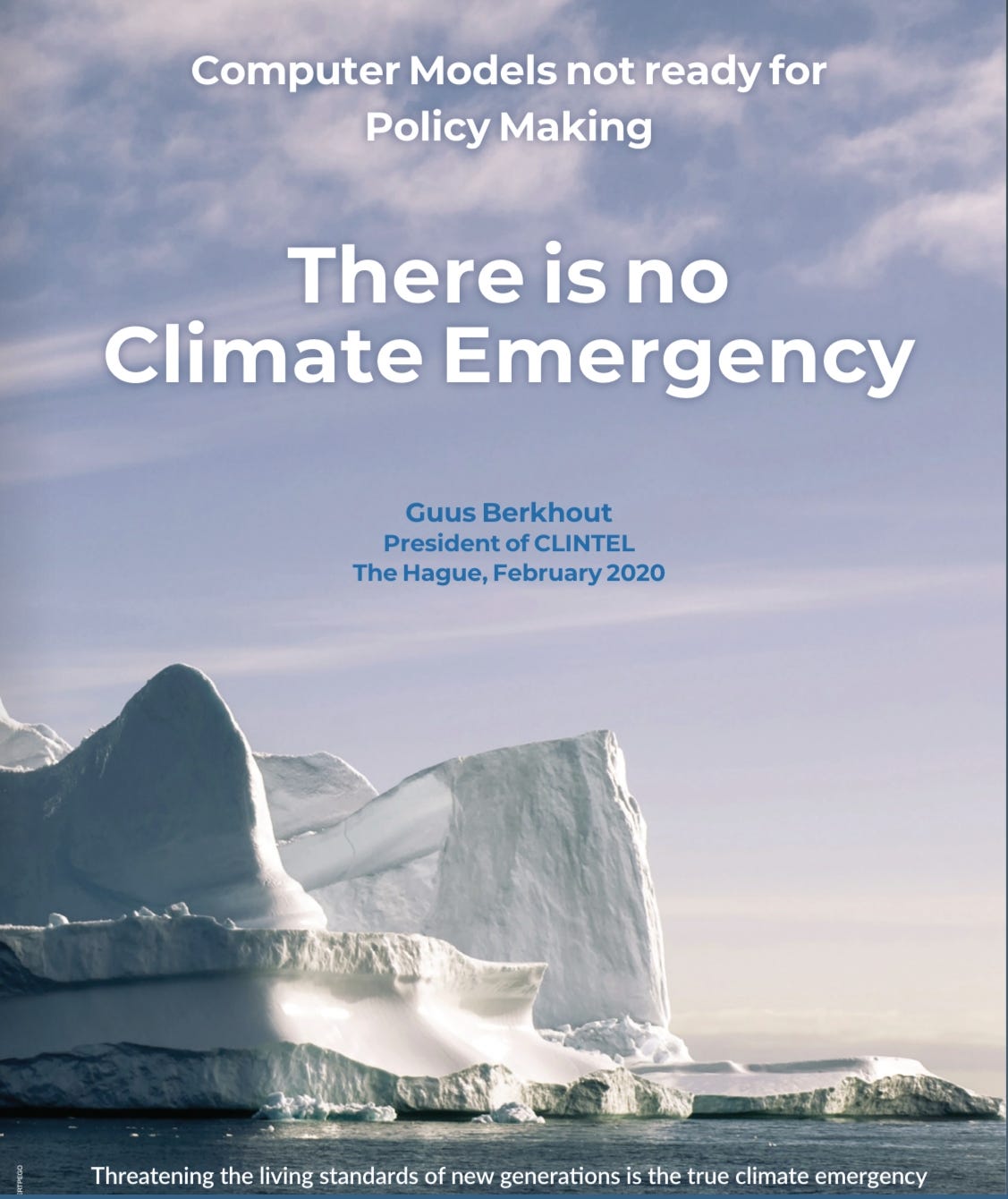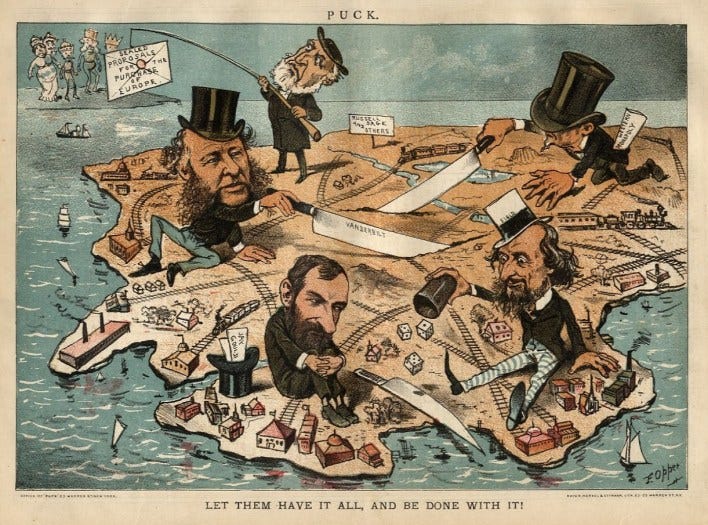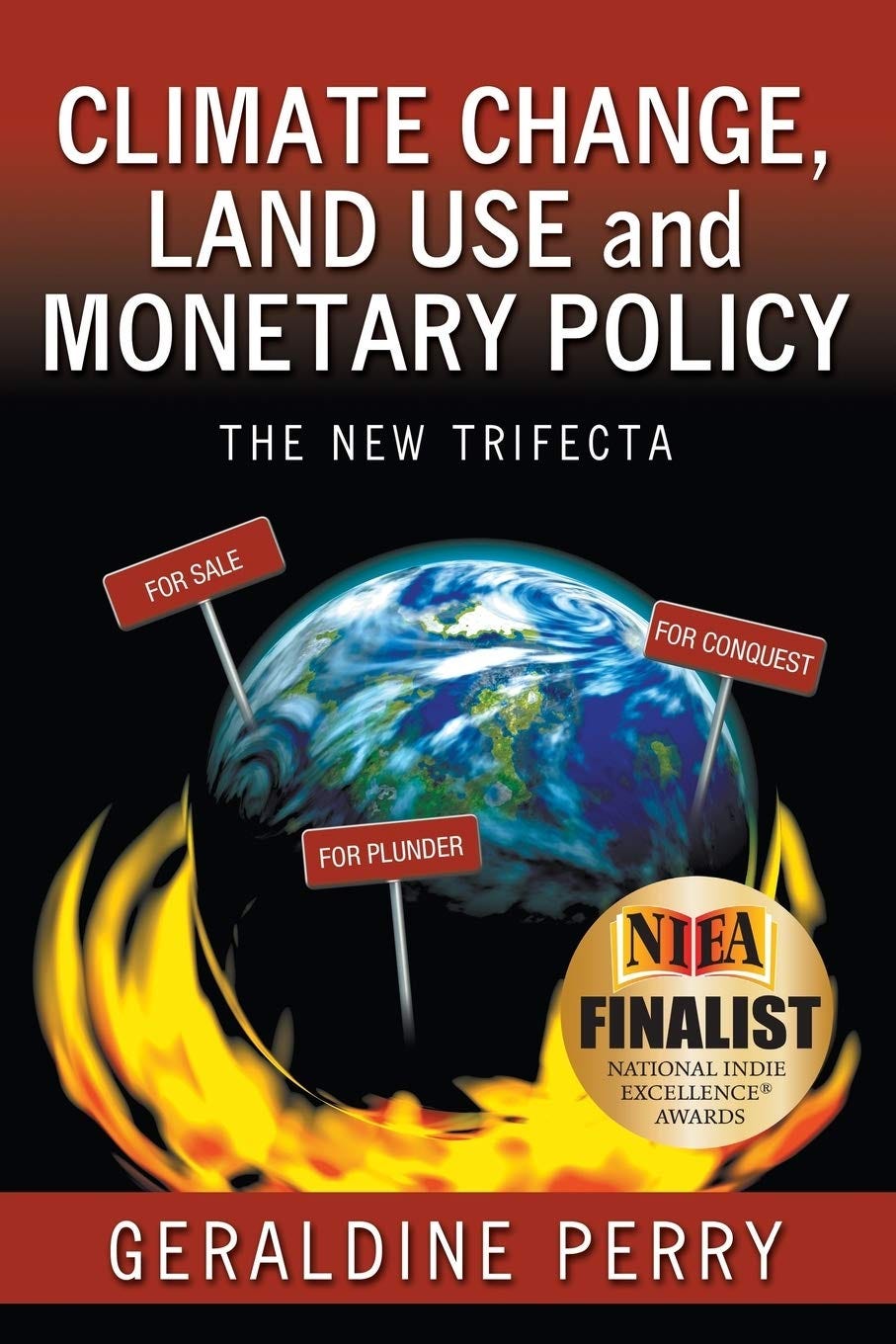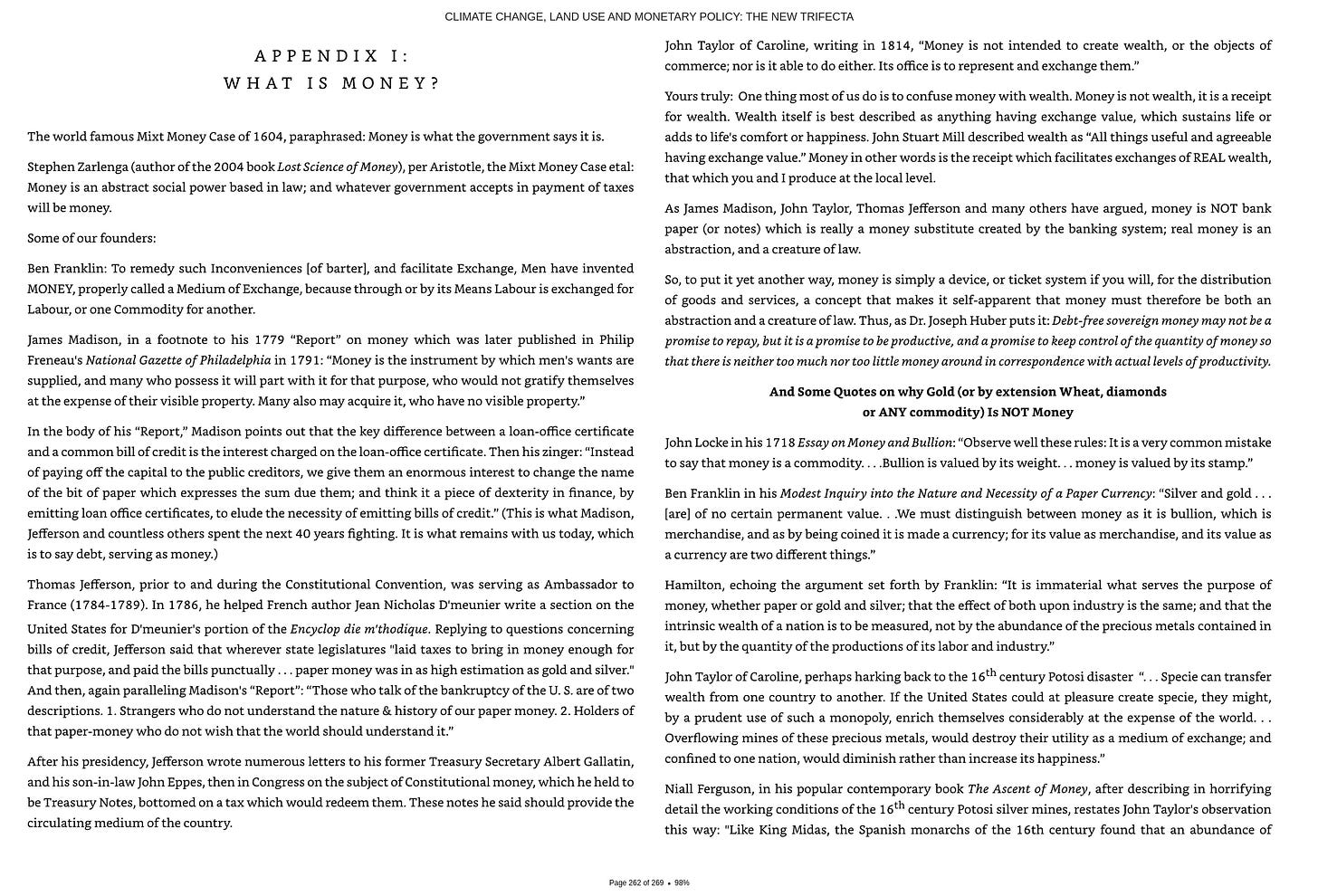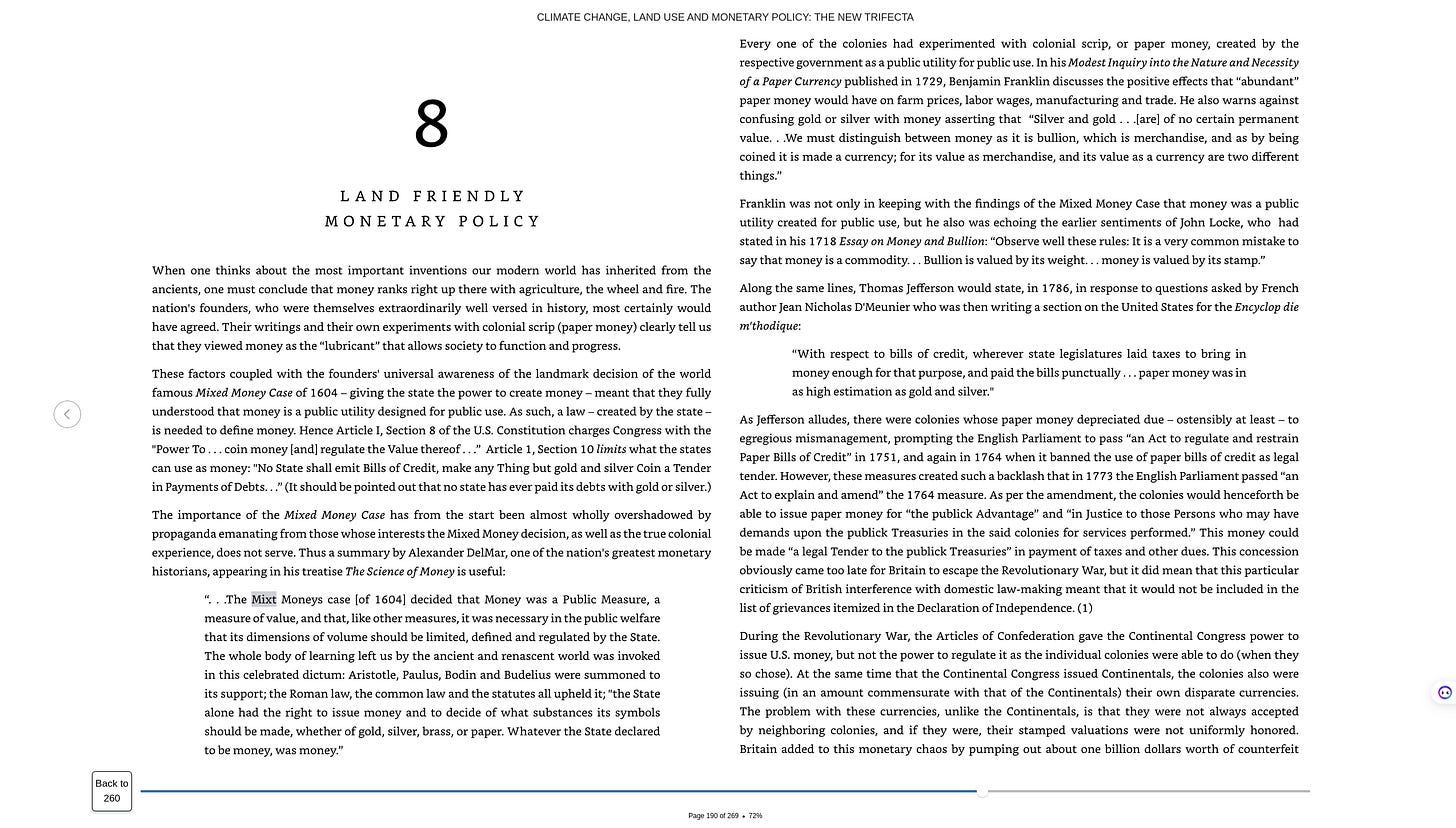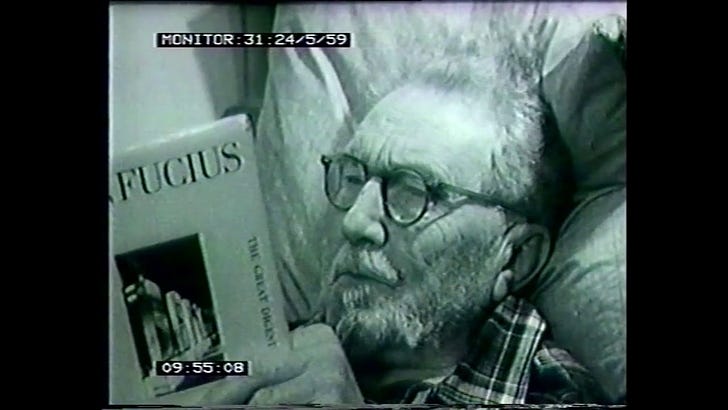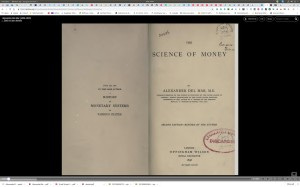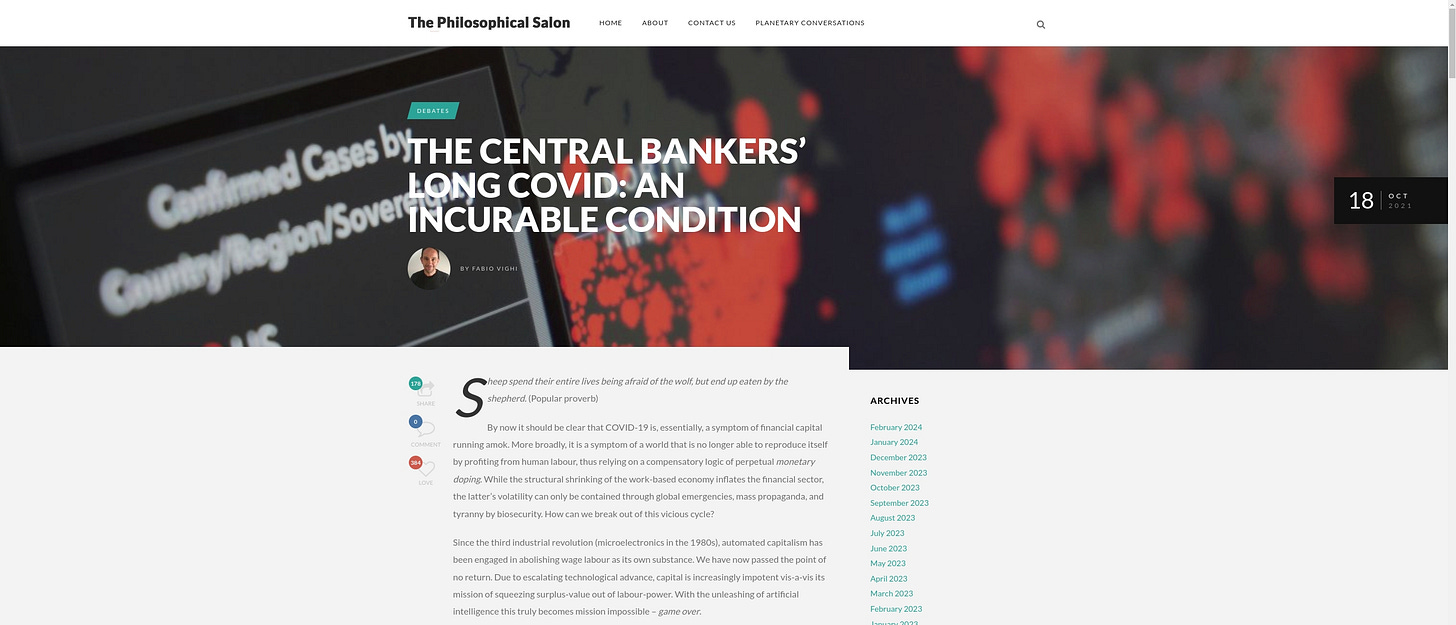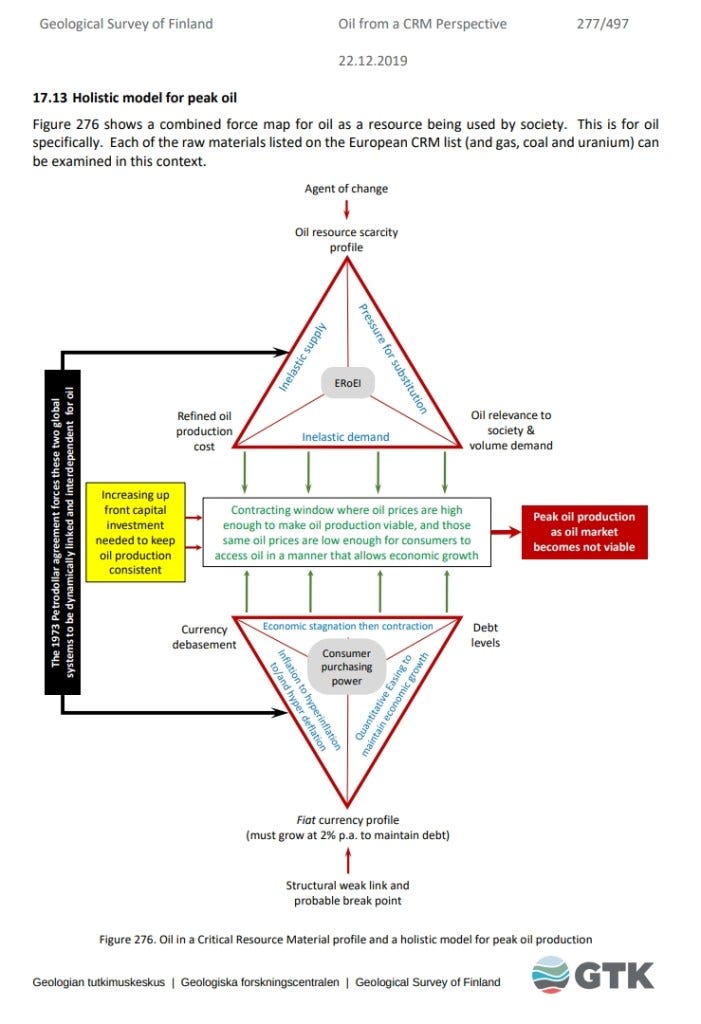The irony of reading Plutarch
Posted on 24/01/2012 | 4 Comments
I read a short essay by Plutarch yesterday. It’s 2.000-year-old text against the notion of borrowing. “Against borrowing money” is the essay’s title and it’s part of his book on Morals.
Plutarch (c. 46 – 120 AD)
Of course he wasn’t an economist so you won’t find financial doctrines in it. But the simple fact of reading a Greek ancestor who has written simple ideas on the notion of borrowing/lending makes it, well, ironic if not tragic.
And then we go back to our news channels and our dear government and we listen things like “we didn’t know” or “there was no alternative”.
Go on, give it a try, it’s long but not too much.
Sec. I. Plato in his Laws [881] does not permit neighbours to use one another’s water, unless they have first dug for themselves as far as the clay, and reached ground that is unsuitable for a well. For clay, having a rich and compact nature, absorbs the water it receives, and does not let it pass through. But he allows people that cannot make a well of their own to use their neighbour’s water, for the law ought to relieve necessity. Ought there not also to be a law about money, that people should not borrow of others, nor go to other people’s sources of income, until they have first examined their own resources at home, and collected, as by drops, what is necessary for their use? But nowadays from luxury and effeminacy and lavish expenditure people do not use their own resources, though they have them, but borrow from others at great interest without necessity. And what proves this very clearly is the fact that people do not lend money to the needy, but only to those who, wanting an immediate supply, bring a witness and adequate security for their credit, so that they can be in no actual necessity of borrowing. [882]
Sec. II. Why pay court to the banker or trader? Borrow from your own table. You have cups, silver dishes, pots and pans. Use them in your need. Beautiful Aulis or Tenedos will furnish you with earthenware instead, purer than silver, for they will not smell strongly and unpleasantly of interest, a kind of rust that daily soils your sumptuousness, nor will they remind you of the calends and the new moon, which, though the most holy of days, the money-lenders make ill-omened and hateful. For those who instead of selling them put their goods out at pawn cannot be saved even by Zeus the Protector of Property: they are ashamed to sell, they are not ashamed to pay interest on their goods when out at pawn. And yet the famous Pericles made the ornament of Athene, which weighed forty talents of fine gold, removable at will, for “so,” he said, “we can use the gold in war, and at some other time restore as costly a one.” So should we too in our necessities, as in a siege, not receive a garrison imposed on us by a hostile money-lender, nor allow our goods to go into slavery; but stripping our table, our bed, our carriages, and our diet, of superfluities, we should keep ourselves free, intending to restore all those things again, if we have good luck.
Sec. III. So the Roman matrons offered their gold and ornaments as first-fruits to Pythian Apollo, out of which a golden cup was made and sent to Delphi; [883] and the Carthaginian matrons had their heads shorn, and with the hair cut off made cords for the machines and engines to be used in defence of their country. [884] But we being ashamed of independence enslave ourselves to covenants and conditions, when we ought to restrict and confine ourselves to what is useful, and dock or sell useless superfluities, to build a temple of liberty for ourselves, our wives, and children. The famous Artemis at Ephesus gives asylum and security from their creditors to debtors, when they take refuge in her temple; but the asylum and sanctuary of frugality is everywhere open to the sober-minded, affording them joyful and honourable and ample space for much ease. For as the Pythian Priestess told the Athenians at the time of the Median war that the god had given them wooden walls, [885] and they left the region and city, their goods and houses, and took refuge in their ships for liberty, so the god gives us a wooden table, and earthenware plate, and coarse garments, if we wish to live free. Care not for fine horses or chariots with handsome harness, adorned with gold [886] and silver, which swift interest will catch up and outrun, but mounted on any chance donkey or nag flee from the hostile and tyrannical money-lender, not demanding like the Mede land and water, [887] but interfering with your liberty, and lowering your status. If you pay him not, he duns you; if you offer the money, he won’t have it; if you are selling anything, he cheapens the price; if you don’t want to sell, he forces you; if you sue him, he comes to terms with you; if you swear, he hectors; if you go to his house, he shuts the door in your face; whereas if you stay at home, he billets himself on you, and is ever rapping at your door.
Sec. IV. How did Solon benefit the Athenians by ordaining that debtors should no longer have to pay in person? For they are slaves to all money-lenders, [888] and not to them only, what would there be so monstrous in that? but to their slaves, who are insolent and savage barbarians, such as Plato represents the fiery torturers and executioners in Hades who preside over the punishment of the impious. For they make the forum a hell for wretched debtors, and like vultures devour and rend them limb from limb, “piercing into their bowels,” [889] and stand over others and prevent their tasting their own grapes or crops, as if they were so many Tantaluses. And as Darius sent Datis and Artaphernes to Athens with manacles and chains in their hands for their captives, so they bring into Greece boxes full of bonds and agreements, like fetters, and visit the towns and scour the country round, sowing not like Triptolemus harmless corn, but planting the toilsome and prolific and never-ending roots of debts, which grow and spread all round, and ruin and choke cities. They say that hares at once give birth and suckle and conceive again, but the debts of these knaves and barbarians give birth before they conceive; for at the very moment of giving they ask back, and take up what they laid down, and lend what they take for lending.
Sec. V. It is a saying among the Messenians, that “there is a Pylos before Pylos, and another Pylos too.” So it may be said with respect to these money-lenders, “there is interest before interest, and other interest too.” Then of course they laugh at those natural philosophers who say that nothing can come of nothing, for they get interest on what neither is nor was; and they think it disgraceful to farm out the taxes, though the law allows it, while they themselves against the law exact tribute for what they lend, or rather, if one is to say the truth, defraud as they lend, for he who receives less than he signs his name for is defrauded. The Persians indeed think lying a secondary crime, but debt a principal one, for lying frequently follows upon debt, but money-lenders tell more lies, for they make fraudulent entries in their account-books, writing down that they have given so-and-so so much, when they have really given less. And the only excuse for their lying is covetousness, not necessity, not utter poverty, but insatiable greediness, the outcome of which is without enjoyment and useless to themselves, and fatal to their victims. For neither do they farm the fields which they rob their debtors of, nor do they inhabit their houses when they have thrust them out, nor use their tables or apparel, but first one is ruined, and then a second is hunted down, for whom the first one serves as a decoy. For the bane spreads and grows like a fire, to the destruction and ruin of all who fall into their clutches, for it consumes one after another; and the money-lender, who fans and feeds this flame to ensnare many, gets no more advantage from it but that some time after he can take his account-book and read how many he has sold up, how many turned out of house and home, and track the sources of his wealth, which is ever growing into a larger pile.
Plutarch, Of the Three Sorts of Government, Moralia
Plutarch, Of the Three Sorts of Government, Moralia
Selling your soul to the company store State monopoly capitalism and the new medici code. Poem, polemic or blog?
#GoingDirectParadigm ~ #OccupyTheEstablishment #NotoEnshittification
https://web.archive.org/web/20020504004235/http://www.propagandamatrix.com/diocletian.html
Diocletian's Problem-Reaction-Solution
A further example of how elites throughout history commit acts of terrorism as a pretext to create enemies and corral populations behind a tyrannical agenda
By Paul Joseph Watson
The Roman Emperor Diocletian came to power in 284 AD. He was an army general with a repressive disdain of his 'subjects.' Diocletian ran his government as a general runs an army, giving orders and expecting them to be carried out. He believed that only severe restrictions on personal freedoms could bring order to the empire. By 301 AD, after the conclusion of conflicts with the Germans and the Sassanids, Diocletian needed a new enemy to justify his tyrannical form of government. At the same time, the Emperor declared the economy to be in crisis and implemented astronomical taxation increases. Amongst the people there surfaced a gradual unrest towards Diocletian'seconomic policy. The Emperor needed a new enemy to regain the support of his pseudo-slaves. After the earlier successful persecution of the Manichaeans, Diocletian slowly turned his head in the direction of the Christians, and his thumb was pointing down. This, despite the fact that he had largely ignored them for the past 15 years. Across the empire, Christians made up around ten percent of the population -- their number having doubled in about fifty years. Two kings had been converted: the king of Osroene in north eastern Mesopotamia and the king of Armenia. Christians were serving in Rome's armies, and they were working as civil servants in local government or in lowly positions on the imperial staff. Diocletian could see his scapegoat.
June 15, 2018
Hope without an object cannot live. This Land is Mine, Henry George and the Single Land Tax
Thus, clearly, money and goods are not the same thing but are, on the contrary, exactly opposite things. Most confusion in economic thinking arises from a failure to recognize this fact. Goods are wealth which you have, while money is a claim on wealth which you do not have. Thus goods are an asset; money is a debt. If goods are wealth; money is not wealth, or negative wealth, or even anti-wealth. They always behave in opposite ways, just as they usually move in opposite directions. If the value of one goes up, the value of the other goes down, and in the same proportion. The value of goods, expressed in money, is called “prices,” while the value of money, expressed in goods, is called “value.”
Carol Quigley, Tragedy and Hope
https://www.wanttoknow.info/articles/quigley_carroll.tragedy_hope_banking_money_history
Money and Goods Are Different
—”Near the window by which I write a
great bull is tethered by a ring in his nose. Grazing round and
round he has wound his rope about the stake until now he stands
a close prisoner, tantalized by rich grass he cannot reach,
unable even to toss his head to rid him of the flies that cluster
on his shoulders. Now and again he struggles vainly, and then,
after pitiful bellowings, relapses into silent misery.
This bull, a very type of massive strength, who, because he
has not wit enough to see how he might be free, suffers want
in sight of plenty, and is helplessly preyed upon by weaker
creatures, seems to me no unfit emblem of the working masses”
Henry George Quoted P. 303 Sprading Liberty and Great Libertarians.
https://www.econlib.org/library/YPDBooks/George/grgPFT.html?chapter_num=2#book-reader
Samuel Taylor Coleridge’s published diaries Table Talk. Table Talk.
this from 27th April 1823.
The national debt has, in fact, made more men rich than have a right to be so, or, rather, any ultimate power, in case of a struggle, of actualizing their riches. It is, in effect, like an ordinary, where three hundred tickets have been distributed, but where there is, in truth, room only for one hundred. So long as you can amuse the company with any thing else, or make them come in successively, all is well, and the whole three hundred fancy themselves sure of a dinner; but if any suspicion of a hoax should arise, and they were all to rush into the room at once, there would be two hundred without a potato for their money; and the table would be occupied by the landholders, who live on the spot.
http://www.gutenberg.org/cache/epub/8489/pg8489.html
THIS HENRY GEORGE SPEECH IS AN IMAGINED RECONSTRUCTION OF THE ACTUAL EVENT WITH THE AUDIENCE REACTION AS DESCRIBED IN THE PUBLISHED SPEECH. http://www.cooperativeindividualism.org/george-henry_peace-by-standing-army-1894.html Henry George (September 2, 1839 -- October 29, 1897) was an American writer, politician and political economist, who was the most influential proponent of the land value tax, also known as the "single tax" on land. He inspired the economic philosophy known as Georgism, whose main tenet is that people should own what they create, but that everything found in nature, most importantly the value of land, belongs equally to all humanity. His most famous work, Progress and Poverty (1879), is a treatise on inequality, the cyclic nature of industrialized economies, and the use of the land value tax as a remedy. http://en.wikipedia.org/wiki/Henry_George
TRAILER FOR A HENRY GEORGE MOVIE.
Some Quotes from the Great but forgotten servant to American federal democracy. It is interesting the many parallels to the current debauchery of American Bi Partisan crony politics. The Bankers of course being the new Robber Barons in Chief as opposed to mere willing accomplices in chief in the 1890´s that Henry Geroge spoke of so eloquently and damingly.
´´What has destroyed every previous civilization has been the tendency to the unequal distribution of wealth and power´´. Henry George
´´He who sees the truth, let him proclaim it, without asking who is for it or who is against it´´.
Henry George
´´Capital is a result of labor, and is used by labor to assist it in further production. Labor is the active and initial force, and labor is therefore the employer of capital”´´. Henry George
´´Poorly paid labor is inefficient labor, the world over´´. Henry George
´´As long as politics is the shadow cast on society by big business, the attenuation of the shadow will not change the substance´´.
Quoted in John Dewey and American Democracy by Robert Westbrook (Ithaca: Cornell University Press, 1991), p. 440; cited in Understanding Power (2002) by Noam Chomsky, ch. 9, footnote 16; originally from "The Need for a New Party" (1931) by John Dewey, Later Works 6, p. 163. (Via Westbrook.)
Peace by Standing Army Henry George
[A speech delivered at the labour meeting, Cooper Union, New York, 12 July, 1894, in which Henry George called for protest against President Cleveland's sending Federal troops to Chicago during the great railroad strike]
Mr. Chairman and Fellow-Citizens: I COME here to-night, at considerable personal inconvenience, to discharge what I believe to be a duty. I come here to talk to you, as I have always talked, frankly and plainly. In some things I do not agree with the men who have invited me to come here. In some things I probably differ from the majority of this audience. I do not believe in strikes. (Hisses and faint cheers.) I am not disposed to denounce George M. Pullman. (Prolonged hisses and groans.) I come here as a citizen, as a Democrat -- (Slight applause, followed by hisses and groans, continuing for several minutes) What is the reason that we are building ships of war and increasing the size of our army? It is because the millionaire monopolists are becoming afraid of a poverty- stricken people which their oppressive trusts and combinations are creating. It is because great wealth, unjustly acquired, always wants the security of standing armies and navies. (Long cheering.) Full Text at Link. http://www.cooperativeindividualism.org/george-henry_peace-by-standing-army-1894.html
History of Banking and Money
Key Excerpts From Carroll Quigley's Tragedy and Hope
"There does exist ... an international Anglophile network ... which we may identify as the Round Table Groups. I know of the operations of this network because I have studied it for twenty years and was permitted for two years, in the early 1960's, to examine its papers and secret records.
"I have no aversion to it or to most of its aims and have, for much of my life, been close to it and to many of its instruments. I have objected ... to a few of its policies ... but in general my chief difference of opinion is that it wishes to remain unknown, and I believe its role in history is significant enough to be known."
-- Quote from Caroll Quigley's Tragedy and Hope, Chapter 65
A brilliant and highly esteemed professor of history at Georgetown University from 1941 to 1976, Carroll Quigley also taught at Princeton and at Harvard, and lectured at the Brookings Institution. He was a frequent lecturer at the U.S. Naval Weapons Laboratory, the Foreign Service Institute, and the Naval College at Norfolk, Virginia.
In 1958, Prof. Quigley served as a consultant to the Congressional Select Committee which set up the National Space Agency. In 1964, he was a consultant at the Navy Post-Graduate School, Monterey, California on Project Seabed. The project was created to visualize the status of future American weapons systems. Below are key excerpts on the history of money and banking from Prof. Quigley's masterpiece Tragedy and Hope: A History of the World in Our Time.
"The powers of financial capitalism had another far-reaching aim, nothing less than to create a world system of financial control in private hands able to dominate the political system of each country and the economy of the world as a whole. This system was to be controlled in a feudalist fashion by the central banks of the world acting in concert by secret agreements arrived at in frequent private meetings and conferences."
-- Quote from Caroll Quigley's Tragedy and Hope, Chapter 20
Note: The below excerpts are taken from chapters 5, 9, 20, 65, and 77 of Tragedy and Hope, with a focus on Prof. Quigley's excellent discussion of the role of money and banking in world history. This is a 40-page summary. To read to a more concise 10-page summary, click here.
## Summary of "Tragedy and Hope" by Carroll Quigley
### Overview
"Tragedy and Hope: A History of Banking and Money" by Carroll Quigley is a profound exploration of the evolution of banking, money, and financial capitalism. Quigley, a distinguished historian, provides critical insights into how financial systems have shaped global politics and economies.
### Key Quotes
> "The powers of financial capitalism had [a] far-reaching aim, nothing less than to create a world system of financial control in private hands able to dominate the political system of each country and the economy of the world as a whole."
> — Carroll Quigley, Chapter 20
### Author Background
- **Carroll Quigley** (1910-1977) was a professor of history at Georgetown University and a consultant for the U.S. government.
- His work emphasizes the interplay between economic systems and historical events, particularly the influence of banking on society.
### Major Themes
#### 1. **Stages of Capitalism**
- **Commercial Capitalism**: Originated from agrarian societies seeking luxury goods.
- **Industrial Capitalism**: Emerged with the demand for heavy fixed capital, leading to the rise of corporations and investment banks.
- **Financial Capitalism**: Integrated the industrial system into larger units, reducing competition and increasing profits.
- **Monopoly Capitalism**: Resulted in economic crises and a struggle for state control.
#### 2. **The Nature of Capitalism**
- Capitalism is driven by self-interest, which can lead to economic disarray.
- The pursuit of profit can overshadow broader social goals like prosperity and moral uplift.
#### 3. **Banking Operations**
- Banking practices were often obscured, making them appear complex and difficult to understand.
- The relationship between goods and money is crucial, with inflation and deflation significantly impacting economies.
#### 4. **Influence of Bankers**
- Bankers, particularly international investment bankers, held significant power over governments and economies.
- They manipulated monetary systems and maintained control over the flow of credit and investment.
#### 5. **Creation of Money**
- Bankers created money through mechanisms like bank notes and deposits, often exceeding actual reserves.
- This practice allowed them to exert control over economic systems without direct political accountability.
### Historical Context
- Quigley discusses the impact of events like World War I on global financial dynamics, shifting the U.S. from a debtor to a creditor nation.
- He highlights the role of influential figures such as Montagu Norman and J.P. Morgan in shaping financial policies and controlling monetary systems.
### Conclusion
Quigley concludes that the future of society depends on recognizing and addressing the man-made nature of economic crises. He advocates for a return to values such as cooperation, compassion, and rationality to foster a more equitable world.
### Further Reading and Resources
- For more in-depth analysis, a **40-page summary** is available.
- The full text of **"Tragedy and Hope"** can be accessed online.
- Additional resources include interviews with Quigley and articles on banking manipulations.
### Call to Action
Readers are encouraged to inform their representatives about the insights from Quigley’s work, engage in discussions on the role of financial systems in society, and explore further resources to understand the implications of banking on global affairs.
---
This summary encapsulates the essential themes and insights from Carroll Quigley's "Tragedy and Hope," providing a foundational understanding of the historical interplay between banking and societal development.
May 21, 2017
Taxation for Revenue Is Obsolete, January 1946, American Affairs. Costed Manifestos? Wheres the beef?
I did this blog of a facebook page posted this morning following frustration at the continued low quality and plain wrong information given out by Politicians but also by pundits and the Vaunted BBC Reality Check videos.
FINACIAL ILLITERACY, THE BLIND LEADING THE BLIND. NATIONAL DEBTS, DEFICITS, PRODUCTIVITY OR, AUSTERITY AND OTHER SHIBBOLETH´S
External links[edit]
http://constitution.org/tax/us-ic/cmt/ruml_obsolete.pdf
12345
Working Paper No. 717 Introduction to an Alternative History of Money by L. Randall Wray* Levy Economics Institute of Bard College May 2012
http://www.levyinstitute.org/pubs/wp_717.pdf
What are the economic principles of taxation?
14. Taxation is at the economic core wherever government supplies significant services such as civil and military protection of property rights, infrastructure, education or healthcare. The UK is no exception.
15. Taxation comprises three fundamental economic parts:
l Creation of the medium of taxation and issue into the economy
l Distribution of the medium of taxation through the economy
l Collection of the medium of taxation
The medium of taxation
16. Over the course of history, the medium of taxation has changed several times. Under the earliest systems, taxation was paid in cattle, later moving to grain – generally rice or wheat (tithe systems) or labour (corvée systems). Whenever payments moved to metal tokens issued by the rulers, a money system was born. These tokens were usually made out of scarce and distinctive metals to prevent counterfeiting – silver, sometimes gold. The tokens would move through the economy through economic exchange, but would be demanded back by the rulers as the means of collecting taxes. Wooden tally sticks were the most successful English tax medium. The public demand of tokens to pay taxation ensures a sustained demand and maintains their exchange value across the economy.
17. Modern taxation systems are still based around the creation, distribution and collection of tokens, but the tokens now take electronic rather than physical form. These tokens are bookkeeping entries in the banking system. The structure of the taxation system and the economy it controls is determined by the rules under which these electronic bookkeeping tokens are created, distributed and collected. Coins and notes are still issued in small quantity, but are subsidiary to to the banking system's bookkeeping entries.
18. The economic power of the tax system is determined both by how and where in the economy the medium of taxation is created and where and how the medium is collected.
19. Contemporary governments grant the exclusive power to issue the medium of taxation to a state sanctioned banking cartel. The banking cartel comprises a central bank and private member banks. The central bank is responsible for price fixing, information sharing, promoting member interests and preventing member defaults. Serving the public interest is not a primary goal of a central bank. The cartel holds the exclusive power to set the price of and issue the medium of taxation. Governments generally prohibit the issue of alternative media for exchange and mandate payments of taxes only in the cartel-issued medium.
20. The collection of the medium of taxation is under direct government control. Most tax is collected whenever economic production takes place. This places a burden on producers, who must acquire the medium of taxation directly or indirectly from the private banking cartel. The economic effect of taxation is dependent on the rules for calculating the amount of tax which is paid, regardless of who the tax is collected from. Usually, the person from whom the tax is collected can pass the burden of acquiring the medium on to others, generally by paying less for economic inputs, but sometimes by charging more for economic outputs.
21. The spending power derived from taxation is shared between the government and the private banking cartel. This spending power is transmitted through the economy by banking cartel to their favoured associates, and by the government and their favoured associates. The system is effectively one of dual sovereignty since the sovereign powers of tax collecting and the corresponding issue of money is shared between the government and the banking cartel. This is the most distorting aspect of tax policy.
Change the medium of taxation
22. The spending power derived from taxation should accrue wholly to the government, and not be shared with the private banking cartel. The only satisfactory ways of achieving the involve abandoning the collection of taxes through the medium of money created by fractional reserve lending. Taxation defines and underpins the money system.
23. Principle : Taxes should only be payable in government issued money
l Money should be issued into circulation exclusively by the government when it pays wages, suppliers, pensions and welfare.
l Money should be withdrawn from circulation by the government when taxpayers pay taxes
l Money created by private businesses should no longer be accepted in payment of taxes
Introduce free markets, abandon production penalties
24. Principle : Taxation should not interfere with free markets in labour, goods and services
25. The following taxes depend on economic production and therefore act as production penalties: Income Tax, National Insurance, VAT, Corporation Tax, CGT, Stamp Duties
26. By design, they impair the free exchange of labour, goods and/or services. They conflict with the above principle. They have no role in any sound tax system, and constitute major distortions in the economy. Harmful and unnecessary, they should be phased out.
Charging the beneficiary
27. Businesses generally charge each customer a market price for the supply of goods or services which benefit that customer. The market price balances the overall forces of supply and demand. The government should use the same principle for taxation. Understanding the nature of "the customer" is a central issue.
28. The legitimate "customers" of government activity are the owners of houses and land in the area governed. The owners of houses benefit from nearby roads, schools, hospitals, parks, police, flood defences. The owners are the ultimate beneficiary whether or not the house is owner-occupied or let to tenants. People renting property may receive these amenities, but pay for their value in their rent. Renters should not pay tax towards these amenities in addition to paying rent for them as at present.
29. Principle : Taxation should only be levied on the ultimate beneficiaries of government, in particular, owners of land and houses.
30. An alternative principle is sometimes advocated, that of "ability to pay". Superficially attractive, this concept is entirely without merit. The ultimate burden of tax is transmitted through the economy so the suppliers of economic inputs whereupon the ability to pay cannot be measured for taxation. Whenever tax exceeds the ability to pay production is lost or transfers to the black market.
31. Where the government confers a benefit exceeding the tax paid for the benefit, an implicit subsidy exists. Implicit and explicit private subsidies tend to undermine the public interest goals of tax policy and should to be avoided.
32. Principle : Taxation should be levied for the full market value of the benefit conferred by government, so avoid implicit subsidies
Welfare payments must be considered with tax
33. Principle : The welfare system should be fully integrated with tax
34. The welfare system functions in ways similar to the tax system, but with the financial flows reversed. While taxes like Income Tax act as production penalties, welfare payments such as Jobseeker's Allowance function as idleness rewards. Means tested welfare payments reward profligacy, penalise saving. There is no role for rewarding idleness in a sound tax and welfare system. Means tests induce fraud and bureaucracy while disempowering citizens.
35. Principle : Means-tests and employment tests should not be part of policy
36. The consequence of excluding means tests and employment tests is that any welfare payments should be made equally to all persons. This concept has been developed by welfare reform advocates who call it a "Citizens' Income", or a "Citizens' Dividend". It is a universal welfare comparable to universal healthcare or universal school education.
37. Principle : A universal "Citizens' Dividend" should be paid equally to all
38. Such a Citizens' Dividend does not distort economic incentives because it is independent of any changes to economic behaviour. It neither rewards nor penalises economic activity, nor does it reward any particular family structure. It empowers ordinary people facilitating their investment in study, business or family life. It improves negotiating power with employers, and eliminates the need for a statutory minimum wage.
39. A Citizens' Dividend is exactly analogous to the dividends paid to shareholders of a business. In this case, it is the return to citizens as shareholders in society. It is paid for entirely from payments made by the beneficiaries of government amenities and services.
Political reality must be fundamental to tax policy
40. Countless efforts at tax reform have been attempted across the globe. Each has been guided by principles and political pragmatics. The result has been a dramatic increase in the complexity of tax and welfare systems to the point where ordinary people cannot understand it. Even top experts consistently fail to predict how tax revenues, welfare payments will develop over time. Individuals generally have mistaken concepts about how much they pay, how much they are entitled to and how proposals would affect them.
41. Because people are generally mistaken about the impacts of policy changes, any reforms proposals quickly produce anxiety and opposition, while vested interests stoke deliberately confusion and misdirect political opinion.
42. Proposals like Land Value Taxation (LVT) have been discussed for many decades, but failed to overcome the political difficulties and obstacles presented by the vested interests.
43. Tax complexity has become a major problem to deal with, but attempts to simplify the system have consistently failed. A new approach to tax and welfare reform is essential.
44. A tax and welfare system based around the fundamental principles here is very simple. Money is spent into circulation by government for the supply of services to property owners. Money is collected from property owners according to the full monthly amenity value of the site locations. The surplus is distributed as a dividend to citizens on an equal per-capita basis.
45. Principle : Changes to existing tax policy create instability, confusion, political uncertainty, financial risk and must be minimised
46. The transition of the tax system to one based on these fundamental principles must avoid creating economic and financial turbulence. It must avoid giving out big windfalls at public expense. And it must avoid creating losers and people who believe they are losers.
47. The new principle of tax reform is the creation of a right to opt in to a new system of taxation and welfare. People should not receive a big windfall from the public when they choose to join the new system and leave the old. As people leave the old system, it will become clear to all that the new system is superior, and in consequence the transition can be rapid. This principle overcomes political barriers
48. It will not be usually be possible for a person to leave the entirety of the old system in a single step. The transition involves contracting with government not to pay particular types of tax in exchange for accepting an equivalent burden.
49. Payments from property owners should be regular, index linked to market values and based upon contract law, not on politically determined tax laws. Payments are independent of legal residence or personality. Citizens, corporations, non-domiciles are treated equally, removing a major cause of distortion and complexity. Establishing such payment contracts should be voluntary act which releases the person from defined obligations under the old system.
50. The Systemic Fiscal Reform Group calls these payment obligations on property "Location Value Covenants" (LVCs), which are legal covenants running with the land. They obligate the owner to pay government a defined perpetual revenue stream.
Recommendations
51. We recommend The Committee
l investigates the principles and implementation of Location Value Covenants
l investigates the impact of private money issue in the tax system
l investigates the Citizens' Dividend as an alternative to welfare payments
l makes public interest the sole determinant of tax principles and rejects the advice of vested interests in the financial, real estate and accounting industries
l declares the present tax system to be not fit for purpose and beyond repair
l adopts the principles contained here for transitioning to a new system
Conclusion
52. Development of the tax system has been constrained by political reality and driven by the demands of vested interests in finance and real estate. The fundamental principles of tax policy should explicitly incorporate the money system and the welfare system. The tax system is not fit for purpose and is beyond repair. It should be replaced by an efficient, neutral and distortion-free system based around clearly defined recurrent payments from owners of land, immovable property and natural resources based on contract law. Means-tested welfare should be replaced by a Citizens' Dividend distributing the financial surpluses of government arising from such reforms.
53. The transition to a new, principled tax system should be on an "opt-in" basis where people can choose to permanently leave the old system when they can benefit from so doing. The effect of such a transition would be an rapid and dramatic revival in economic performance without battling political headwinds.
54. The principles outlined here fully meet all the objectives of the OECD tax report and the Mirrlees Review. They meet Smith's canons of taxation and adhere to orthodox and common heterodox academic analysis. They are comprehensible and achievable.
January 2011
https://archive.nytimes.com/www.nytimes.com/interactive/2010/05/02/weekinreview/02marsh.html
An August 24, 2012 study (4) conducted by Professor Anthony Evans and his colleagues at The ESCP Europe Business School offers a compelling proof of concept for the Jubilee idea. By analyzing up-to-date figures from the IMF and the Bank of International Settlement (BIS), the study explores the potential impact of a sovereign debt jubilee on nations such as Portugal, Ireland, Italy, Greece, Spain, Britain, France, and Germany.
The study's findings paint a compelling picture of the potential benefits of a debt jubilee. By cross-cancelling all foreign debts owed among these nations, a sovereign debt jubilee could effectively dismantle the web of mutually destroying debt that currently plagues the global financial system. This bold move would reset the financial landscape, offering a fresh start for nations burdened by unsustainable levels of debt.
One of the key implications of a People's Debt Jubilee is its potential to destroy tax evasion and avoidance. By wiping the slate clean and zeroing out existing debts, nations would experience a windfall of tax revenue that had previously gone unpaid. This injection of funds could provide much-needed relief from austerity measures and pave the way for economic recovery.
Furthermore, a debt jubilee would shine a light on the pervasive fraud that has plagued the global financial system. The exposure of fraudulent practices and the demand for transparency in debt transactions would usher in a new era of accountability and integrity in financial dealings.
At the heart of the debt jubilee concept lies a fundamental question: to whom do we owe this money, exactly? This question has been conspicuously absent from mainstream discourse, despite its critical importance in understanding the nature of our indebtedness. It is imperative that we scrutinize the origins and beneficiaries of the debts that burden nations and individuals alike.
February 19, 2017
https://issuu.com/corporatewatch/docs/corporate_watch_false_dilemmas_guid
Based on myths and false dilemmas, the mainstream narrative around the crisis still dominates discussion. Breaking away from this, this guide provides the arguments to debunk austerity, the tools for debt resistance, and lots of inspiration from social movements.
https://www.yumpu.com/en/document/read/63108553/there-is-no-climate-emergency
There Is No Climate Emergency, Say 500 Experts in Letter to the United Nations
Carpe Diem
October 01, 2019
This report on the excellent cintel ( Freinds of Science ) people was reviewed by the American Enterprise Institute, a look at their board of trustees sees the chair from the Carlyle Group. If you don’t know who they are it is a revolving door investment fund, John Major got on the payroll when he left office. Anyway, they are not exactly the good guys. That said they do have functioning grey cells, similarly the appearance of Kevin Roberts President, of The Heritage Foundation at the WEF Davos discussion of What to Expect from a Possible Republican Administration?
Board of Trustees
AEI is governed by a Board of Trustees, composed of leading business and financial executives.
Daniel A. D’Aniello, Chairman
Cofounder and Chairman Emeritus
The Carlyle Group
Meet The Fuggers, Brexit, The Euro and Clueless Elites.
Meet the Fuggers or, its the Money Power stupid.
Brexit, The Euro and clueless Elites.
The Eastern Roman empire under Justinian saw the seeds of its final fall to The Ottomans when Abd El Melik started paying tribute in Gold coinage under his own Political Branding you might say.
With all the talk of Brexit being the removal of a final obstacle to the deeper federation of a European State transcending tiresome nationalism, perhaps a little review of History, particularly Monetary history, might not be such a bad thing.
In the review of European competences carried out as a consultation by the foreign office regarding Brexit and or reform requirements of the Eu, two of the papers need to be considered in the context of the Money power argument.
https://web.archive.org/web/sitemap/https://notthegrubstreetjournal.com
QED Post Climate Change, Land Use and Monetary Policy, The New Trifecta.
Doubling Back I often find it somewhat more productive than doubling down.
APPENDIX I: WHAT IS MONEY? The world famous Mixt Money Case of 1604, paraphrased: Money is what the government says it is. Stephen Zarlenga (author of the 2004 book Lost Science of Money), per Aristotle, the Mixt Money Case etal: Money is an abstract social power based in law; and whatever government accepts in payment of taxes will be money. Some of our founders: Ben Franklin: To remedy such Inconveniences [of barter], and facilitate Exchange, Men have invented MONEY, properly called a Medium of Exchange, because through or by its Means Labour is exchanged for Labour, or one Commodity for another. James Madison, in a footnote to his 1779 “Report” on money which was later published in Philip Freneau's National Gazette of Philadelphia in 1791: “Money is the instrument by which men's wants are supplied, and many who possess it will part with it for that purpose, who would not gratify themselves at the expense of their visible property. Many also may acquire it, who have no visible property.” In the body of his “Report,” Madison points out that the key difference between a loan-office certificate and a common bill of credit is the interest charged on the loan-office certificate. Then his zinger: “Instead of paying off the capital to the public creditors, we give them an enormous interest to change the name of the bit of paper which expresses the sum due them; and think it a piece of dexterity in finance, by emitting loan office certificates, to elude the necessity of emitting bills of credit.” (This is what Madison, Jefferson and countless others spent the next 40 years fighting. It is what remains with us today, which is to say debt, serving as money.) Thomas Jefferson, prior to and during the Constitutional Convention, was serving as Ambassador to France (1784-1789). In 1786, he helped French author Jean Nicholas D'meunier write a section on the United States for D'meunier's portion of the Encyclop die m'thodique. Replying to questions concerning bills of credit, Jefferson said that wherever state legislatures "laid taxes to bring in money enough for that purpose, and paid the bills punctually . . . paper money was in as high estimation as gold and silver." And then, again paralleling Madison's “Report”: “Those who talk of the bankruptcy of the U. S. are of two descriptions. 1. Strangers who do not understand the nature & history of our paper money. 2. Holders of that paper-money who do not wish that the world should understand it.” After his presidency, Jefferson wrote numerous letters to his former Treasury Secretary Albert Gallatin, and his son-in-law John Eppes, then in Congress on the subject of Constitutional money, which he held to be Treasury Notes, bottomed on a tax which would redeem them. These notes he said should provide the circulating medium of the country. John Taylor of Caroline, writing in 1814, “Money is not intended to create wealth, or the objects of commerce; nor is it able to do either. Its office is to represent and exchange them.” Yours truly: One thing most of us do is to confuse money with wealth. Money is not wealth, it is a receipt for wealth. Wealth itself is best described as anything having exchange value, which sustains life or adds to life's comfort or happiness. John Stuart Mill described wealth as “All things useful and agreeable having exchange value.” Money in other words is the receipt which facilitates exchanges of REAL wealth, that which you and I produce at the local level. As James Madison, John Taylor, Thomas Jefferson and many others have argued, money is NOT bank paper (or notes) which is really a money substitute created by the banking system; real money is an abstraction, and a creature of law. So, to put it yet another way, money is simply a device, or ticket system if you will, for the distribution of goods and services, a concept that makes it self-apparent that money must therefore be both an abstraction and a creature of law. Thus, as Dr. Joseph Huber puts it: Debt-free sovereign money may not be a promise to repay, but it is a promise to be productive, and a promise to keep control of the quantity of money so that there is neither too much nor too little money around in correspondence with actual levels of productivity. And Some Quotes on why Gold (or by extension Wheat, diamonds or ANY commodity) Is NOT Money John Locke in his 1718 Essay on Money and Bullion: “Observe well these rules: It is a very common mistake to say that money is a commodity. . . .Bullion is valued by its weight. . . money is valued by its stamp.” Ben Franklin in his Modest Inquiry into the Nature and Necessity of a Paper Currency: “Silver and gold . . .[are] of no certain permanent value. . .We must distinguish between money as it is bullion, which is merchandise, and as by being coined it is made a currency; for its value as merchandise, and its value as a currency are two different things.” Hamilton, echoing the argument set forth by Franklin: “It is immaterial what serves the purpose of money, whether paper or gold and silver; that the effect of both upon industry is the same; and that the intrinsic wealth of a nation is to be measured, not by the abundance of the precious metals contained in it, but by the quantity of the productions of its labor and industry.” John Taylor of Caroline, perhaps harking back to the 16th century Potosi disaster “. . . Specie can transfer wealth from one country to another. If the United States could at pleasure create specie, they might, by a prudent use of such a monopoly, enrich themselves considerably at the expense of the world. . . Overflowing mines of these precious metals, would destroy their utility as a medium of exchange; and confined to one nation, would diminish rather than increase its happiness.” Niall Ferguson, in his popular contemporary book The Ascent of Money, after describing in horrifying detail the working conditions of the 16th century Potosi silver mines, restates John Taylor's observation this way: "Like King Midas, the Spanish monarchs of the 16th century found that an abundance of precious metal could be as much a curse as a blessing. The reason? They dug up so much silver to pay for their wars of conquest that the metal itself dramatically declined in value. . . What the Spaniards failed to understand was that the value of precious metal is not absolute. . ."
Ferguson then writes: “The intangible character of most money today is perhaps the best evidence of its true nature. What the conquistadors failed to understand is that money is a matter of belief, even faith: belief in the person issuing the money he uses or the institution that honors his cheques or transfers. Money is not metal. It is trust inscribed. And it does not seem to matter much where it is inscribed: on silver, clay, on paper, on a liquid crystal display. Anything can serve as money, from the cowrie shells of the Maldives to the huge stone discs used on the Pacific islands of Yap. . .” This concept of money was suggested by James Madison in his “Report” in which he asserts that the value of a nation's money is dependent upon “the credit of the state issuing it”. Madison's discussion of the much maligned Continentals asserts that part of the reason for their decline in value had to do with growing distrust of the public credit, caused in part by “a combination of enemies employing every artifice to disparage [the currency].” Stephen Zarlenga cites two ancient cases of monetary science from Greece and Rome that supports this idea that "money is not metal, it is trust inscribed": ''Plutarch describes Lycurgus 8th century BC monetary reform when Sparta’s wealth became overly concentrated. He banned using gold and silver and used iron slugs for money. Furthermore those iron pieces were dipped in vinegar while hot, to render them brittle and purposely destroy any commodity value that they had as iron! They received their value through legal sanction. This nomisma system lasted over 3 centuries and Sparta became a premier power. Polybius tells us it faltered when Sparta's involvement in empire regressed her back to gold and silver money and they lost the science of money. 'Republican Rome based her money on copper, isolating herself from the East and “disenfranchising” the gold/silver hoards and therefore much of the power of the East. Gold could be traded as merchandise; but without the monetary power, the ability of the East to control Rome’s money was reduced and she had a better chance to control her destiny. Roman Nomisma, were bronze discs legally valued far above their commodity content through the law.”
On the question of whether gold is money, Alexander DelMar relates the following in his treatise The Science of Money: “. . .The Mixt Moneys case [of 1604] decided that Money was a Public Measure, a measure of value, and that, like other measures, it was necessary in the public welfare that its dimensions of volume should be limited, defined and regulated by the State. The whole body of learning left us by the ancient and renascent world was invoked in this celebrated dictum: Aristotle, Paulus, Bodin and Budelius were summoned to its support; the Roman law, the common law and the statutes all upheld it; "the State alone had the right to issue money and to decide of what substances its symbols should be made, whether of gold, silver, brass, or paper. Whatever the State declared to be money, was money” . . . and observes that By monopolizing this [gold] commodity the moneyed classes have got Nature by the throat and the community under their heels. . . Compared with this process, usury is mere child's play.” The more contemporary problem that allows the myth that money must be based on some commodity such as gold or other type of collateral to persist is discussed in brief by Alexander Del Mar: “As a rule political economists . . don’t take the trouble to study the history of money; it is much easier to imagine it and to deduce the principles of this imaginary knowledge.” 1935 statement by Frank Vanderlip, who served as Assistant Secretary on the Treasury under William McKinley and later as President of the National City Bank of New York, and who was one of the seven original authors of Federal Reserve Act: “What is it we want of our currency? . . . We want a dollar that will, in the language of the President, “not change its purchasing and debt paying power during the succeeding generation” . . . What are the points to be taken into consideration? First and foremost, that Congress should assume the responsibility laid on it by the Constitution of regulating the value of money. We now know that a given weight of gold is not an unchanging standard of value. That fact is dawning slowly on the most conservative and obstinate minds.”
Land Use and Monetary Policy, The New Trifecta. This Book is highly recommended.
August 26, 2019
VALUE IS A NUMERICAL RELATION. ALEXANDER DEL MAR, THE SCIENCE OF MONEY. #THEGRUBSTREETJOURNAL #GRUBSTREETJOURNAL #CONQUESTOFDOUGH
https://archive.org/stream/AlexanderDelMar/AlexanderDelMar-TheScienceOfMoney1896#page/n7/mode/2up
https://archive.org/details/romanmoslemmoney0000delm/romanmoslemmoney0000delm
The Rock Thrown in the Pond - Who Profits?
by Walter Burien - 09/15/07
When the US went off the gold and silver standard in 1963, about the year 1971 the central banks (of which the facets are the insurance and brokerage companies) and the world power players (the Cabal) started buying up as much of the gold they could get their hands on. On average 150 tons per month over the next 40 years.
It was in their interests to use the derivatives market to keep the price low so they could buy the physical gold with the least amount of dollars used. In 1974 and 1979 they flexed their muscles by playing on that ever proven age old technique for conversion of wealth from others into their pockets with a run towards $1000 gold, $2 gas, $50 Silver, and 21% interest rates. It worked grandly. Pure control, pure manipulation, pure conversion, most of the population got screwed as prices went up and then came crashing down. With their partner in crime, the syndicated media controllers and key players from with US (federal and local) Government. They were able to convert a big piece of the pie into their hands.
Come 2001, the move goes into play for the "Big" and final conversion for unified one world order control, but with a slightly different twist. This time it should be called the promoted false flag conversion technique. The circumstances didn't require another World War, just the implication of one.
People are creatures of habit. People have been conditioned into chasing after dollars and in fact by the controllers playing on the peoples own greed and barraging them with nonstop commercial programming, many of the people have turned their back on their country, families, friends, and neighbors as they through conditioned reflex response acted towards chasing after those dollars as conversion from the public's own wealth funneled straight into the syndicates pocket took place.
There is a real World War going on. It has nothing to do with the common applied terms of war as we have been conditioned to know of bombs, bullets, and death there from. It is a war of population control and management.
What are the objectives of this war of the controllers? Final Jeopardy Question!! Tic, tic, tic. Final answer: Population management and control where the end result has an ongoing conversion of wealth in place whereby the population is managed as a "Productivity Unit," with most of that productivity going into the hands of the controllers. Nothing new here, that game-plan has been in effect from before the times of the Egyptian Pharaohs.
To the Cabal it does not really matter if the conversion takes place during peaceful times, brutality by conventional war, or under democracy, communism, fascism, or forced or voluntary servitude. All that matters is that the conversion takes place.
When you look at world events, to understand what is going on all you have to do is ask yourself; Who benefits (profits)?
EXAMPLE: 911 - Here, the who benefited question is overpoweringly clear. i.e.:
1. Larry Silverstein with about a hundred million dollar investment (a few monthly payments on the WTC complex lease agreement) gets a 6.5 billion dollar payout;
2. Port Authority who was trying to sell the WTC complex since 1978 with no takers, and who knew since 1982 that the towers needed to be demolished at a cost of over ten billion dollars due to inherent design flaws gets their problem solved;
3. US Government (local and federal) who were holding their largest "short" international derivative positions in the history since government funds were trading the international markets (60% - 65% short) turns those position's into trillion dollar profits in the blink of an eye;
4. The political front, fifty billion dollars changes hands within government by assignment in the first two weeks after 911;
5. Legislation takes place for catchy named programs called "The Patriot Act", and "Homeland Security" which puts the population of the United States down the path to be under clear fascist and police state dictates;
6. Over three trillion dollars changes hands as the US targets oil rich countries, and now has a Iran in their cross-hairs with virtually no opposition of any consequences in having done so;
7. Interest rates go down to a half of a percent, the stock market to the moon, and US Dollar to its 30 year low totally contrary to any norm and then these items oscillate at the promoted cue of the Cabal (with the motivational script being read by their partners the syndicated media to school the minnows) whereby the controllers knowing the intent and direction liquidate all of the non-cabal players of vast (a few trillion dollars) amounts of money;
8. And last but not least, the Cabal's plan that went into effect in 1963 to buy up all of the gold under the Cabal's control. The plan is now being wedged as a force play for gold to become the standard again as the backing for US currency as the "barter" tool of choice.
Well, I am sure you have heard that expression, "He who controls the Gold make the rules." Well, if they pull it off, it will be the last "Key" to opening the door for the one-world-governance being that the ones who own all of the gold is the cabal and if done the last and greatest play for conveyance of wealth into their hands will have been accomplished. Gold will move to $1200 to $3000 per oz and the Cabal will own most of it.
The US Government pledged, all of the gold it owned to the Federal Reserve in 1963 then at $42 per oz as can be seen and verified in the note section, note 2 and 14 of the 1999 Federal Combined Financial Statement. If the dollar went on the gold standard we would have to buy the gold from the Cabal. Get it? I hope so.
When this push comes to shove play goes into effect, here is the silver bullet as they call it to cancel out the Cabals final step for world wealth conversion into their hands;
Let the dollar be backed by a commodity index which includes; grains, metals, produce; domestic stock; energy; etc. Here it will not be the golden rule but the productivity value of the countries commodity production.
Doing this will really put a hiccup (to say the least) in the Cabal's plan for final conversion through their hoarding of gold since 1963. (The Cabal won't get killed, they just won't make a killing) It will also be a just economic environment world wide being that each country's currency will now maintain or grow in its value based on that country's own productivity in physical resources not "exclusively" on who owns the gold.
I cannot emphasize enough the importance of what is said in the paragraph above. It is the difference between primary failure of the Cabal's last step and significant success accomplished for the people.
A commodity INDEX backed currency and NOT a gold backed currency.
Keep in mind, the central banks with the Cabal players now are the "owners" of 85% of the gold, the general populace has very little. The Cabal's plan since 1963 has been to facilitate absolute corporate controlled management of the people as conversion of the people's wealth in final result ended up in their hands.
Since September 11th 2001, the process, in all respects (emphasis added) for conversion of that wealth has speeded up ten times fold. Do not let them turn the final and last key as they have planned.
A few Generals need to come forward from the general population to make what happens, happen for the "benefit" of We The People, and not the Cabal or there will no longer be We The People, but We the Slaves. Break that masterfully applied entertainment conditioning forced on you since birth and join the war, our war to protect our families, friends, and neighbors from the clear intent of the Cabal.
I support Dr. Ron Paul for President of the United States at this time on most points but not at all on his statements per the dollar backed by gold. Intentionally or unintentionally on his part, if he was elected president and was to implement a just gold backed US dollar, he would be finalizing turning the last key for the Cabal to accomplish their final conversion. If, at this time Dr. Paul changed his statements to a dollar backed by a "commodity index" that included gold and all other commodities (Where the true wealth of the US rests), then I would back this "General" platform 101% otherwise I could not.
PS: Back to who Benefits? It was not a few countries from the Middle East or the people therein who have had their resources plundered, a million or so of their people killed, who are now facing totalitarian rule by an externally placed and managed puppet regime.
Look closely at reality and not well managed marketed hype designed with specific objectives harmonized with well orchestrated and promoted events designed to accomplish the Cabal's master plan.
If We The People do not get a grip, and then regain control, we will all suffer dire consequences for not having done so. One voice can turn into a million and a million can change the World. Focus on the basics and stop scattering like minnows every time the Cabal throws a rock in the pond. Catch the rock before it hits the water and throw it back, or even better yet, take the rock out of their hand in the first place.
Truly yours,
Walter J. Burien, Jr.
P. O. Box 2112
Saint Johns, AZ 85936
RETURN TO THE CAFR1 FRONT PAGE
Flu d’état, Part 2. Central Bank Coup Det Tat. The Central Bank Balance Sheet Pandemic. OCTOBER 3, 2021 #Covidstroika ITS A DIGITAL BANK PASSPORT NOT A VACCINE PASSPORT #QED.
“a state of semi-permanent health emergency is preferable to a vertical market crash that would turn the memory of 2008 into a walk in the park.” September 17th 20019 #RepoSpike #GoingDirect
AUTHOR:ROGERGLEWIS PUBLISHED DATE:JANUARY 13, 2022
This is an excellent article and analysis. The driving motivation behind the accelerated rush to a Techno Fascist Feudalism has been occupying my mind for the years leading up to the Repo Spike in New York in September 2019.
In the Financialised economy and with the CBDC push tied to Digital IDs, we see a symptom of the appearance of what the system is trying to preserve, namely itself and its Monopoly ingroup. The real economy is put in the position of trying to make bricks without straw, a misallocation of resources, and the Credit tokens to acquire those resources.
The Dominant Resource that ties the Financial system’s real potential to the Real potential of the real economy is the Flow of Energy resources and Primary resources through the economy. It would seem that a Hard limit on available energy to sustain the present industrial output of the global economy has been hit ( Not due to peak oil or even peak cheap peak oil but to Peak disinvestment in Hydro Carbons)*, what seems inexplicable is the Priorities touted in narratives regarding Why our largest Energy Sources the Hydro Carbons, Gas, Oil, and Coal, and the largest potential replacement for them Nuclear are being demonised?
*, Link added to Going Direct Mind Map ED.
Bi-oilism.Petro/CarbonDollar Standard
The Fairy Story by the Geological survey of finland.
Plateau Oil. A variation on the idea of peak oil. AT Plateaux production no swing capacity in Oil Supply is similar to demonetizing Silver giving a defacto PetroDollar Standard which is inherently deflationary.
QED,
https://web.archive.org/web/20200821033837/https://tupa.gtk.fi/raportti/arkisto/70_2019.pdf
Timonism, The Calvinist strain in Neo Liberal Misanthropy. Zionism, The Money Power Usury and The Petro Dollar. Fall of the Roman Empire 2.0.
https://www.ollswang.com/home/cynicism
The Conquest Of Dough A Novel with Multimedia Web Site
Crises In Heresy.By Roger G Lewis (2024)
Heresies , skeptical uttered things
usually by Heretics not our type
A black living pest attached to a thought.
properly removed by crushing between
the Thumb and forefinger taking care
To rip the offending critter by the root.
As the blood of its misery congeals
I am reminded of a crown of thorns
breaking the skin but not the will
of a Saviour crucified without cause
Plutarch, Of the Three Sorts of Government, Moralia
Plutarch, Of the Three Sorts of Government, Moralia
https://www.everand.com/series/712247491/The-Going-Direct-Paradigm-Spring-2024







